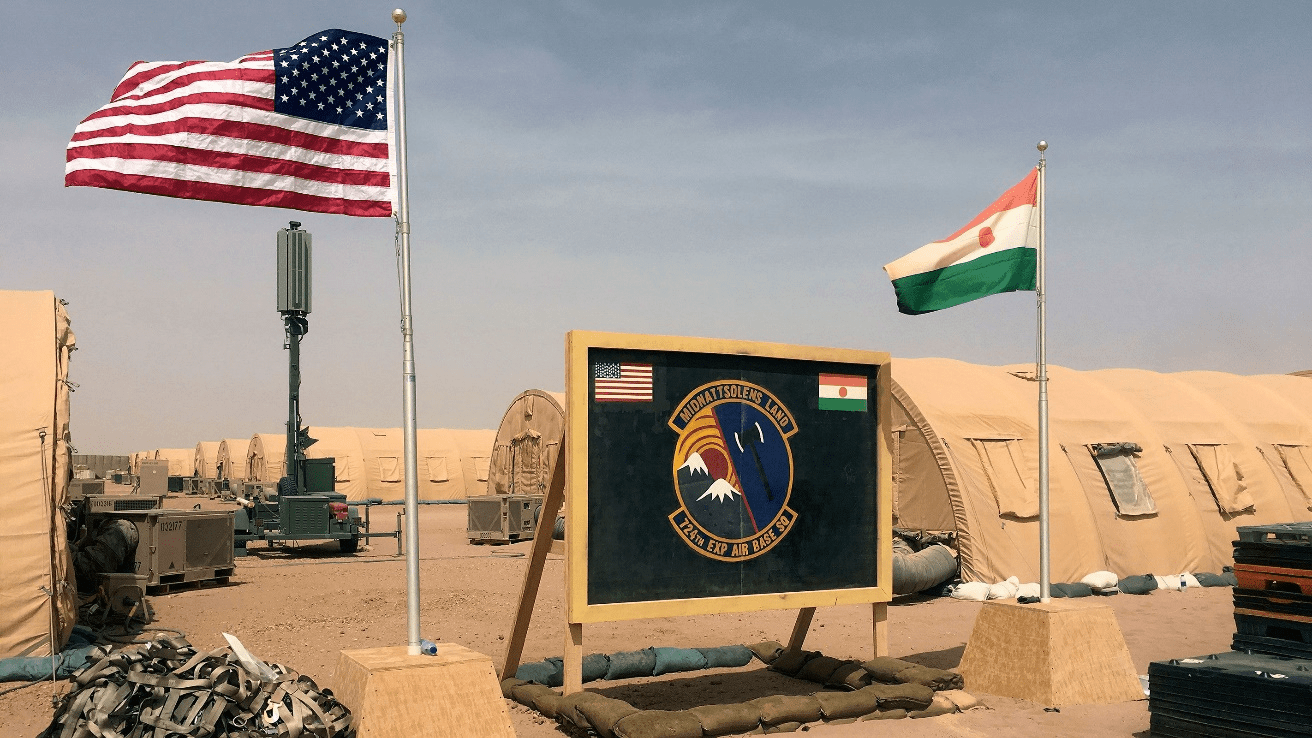
U.S. to Hand Over Airbase 201 in Agadez to Nigerien Government, Completing Troop Withdrawal from Niger by September 15 Deadline
Fiona Nanna, ForeMedia News
6 minutes read. Updated 5:46AM GMT Tues, 6August, 2024
The United States is scheduled to transfer its final military base in Niger to Nigerien authorities on Monday, marking a significant shift in the geopolitical landscape of the Sahel region. This move is part of a broader agreement under which U.S. forces are set to withdraw from the country by September 15, 2024.
The base in question, Airbase 201, located in the city of Agadez, has been a crucial hub for U.S. counterterrorism operations in Niger. This handover follows the recent withdrawal of U.S. troops from Airbase 101, a smaller drone base situated in Niamey, the capital city of Niger. This reduction in U.S. military presence is reflective of a wider trend involving Western troop withdrawals from the Sahel, a vast and strategic region south of the Sahara Desert, where extremist groups linked to al-Qaida and the Islamic State have been active.
In addition to the U.S. forces, German troops are also scheduled to depart from the region this month. These departures come in the wake of recent military coups in Niger, Mali, and Burkina Faso, which have resulted in a regional shift towards expelling foreign military forces and adopting a more confrontational stance against France and its Western allies.
Aneliese Bernard, the director of Strategic Stabilization Advisors—a Washington D.C.-based risk consulting group with operations across the Sahel and West Africa—has highlighted the potential implications of this withdrawal. Bernard noted that while Western counterterrorism efforts in the region have faced challenges, the complete removal of French, European, and American forces could create a significant security vacuum. This void could impact various sectors, including business operations and humanitarian aid.
“The absence of international military support will leave a substantial gap in security, especially in regions outside major urban centers,” Bernard said. “Without adequate security measures in place, businesses involved in extractive industries, such as uranium mining near Agadez, might find themselves operating in perilous conditions.”
Bernard further pointed out that the Nigerien government’s recent decision to revoke French fuel producer Orano’s permit to operate in one of the country’s largest uranium mines underscores the shifting dynamics. There is speculation that the Nigerien government might seek new partnerships, potentially with countries like Turkey, which could offer military support in exchange for access to Niger’s natural resources.
Additionally, recent reports suggest that American and Canadian companies may be negotiating with SOPAMIN, Niger’s state-owned uranium mining company, about future collaborations. However, Bernard cautioned that the absence of international forces is likely to exacerbate the vulnerabilities of Niger’s most impoverished citizens, who are already among the world’s most vulnerable populations.
Humanitarian workers in Niger are now required to have military escorts when operating outside major cities, a condition that increases their risk of becoming targets for armed groups. Bernard warned that this could lead many non-governmental organizations (NGOs) to reduce their field operations, further isolating vulnerable communities from essential aid.
For further details on the implications of Western troop withdrawals from the Sahel and the evolving security situation in Niger, visit our Comprehensive Analysis on Sahel Security and Impact of Military Withdrawals.

